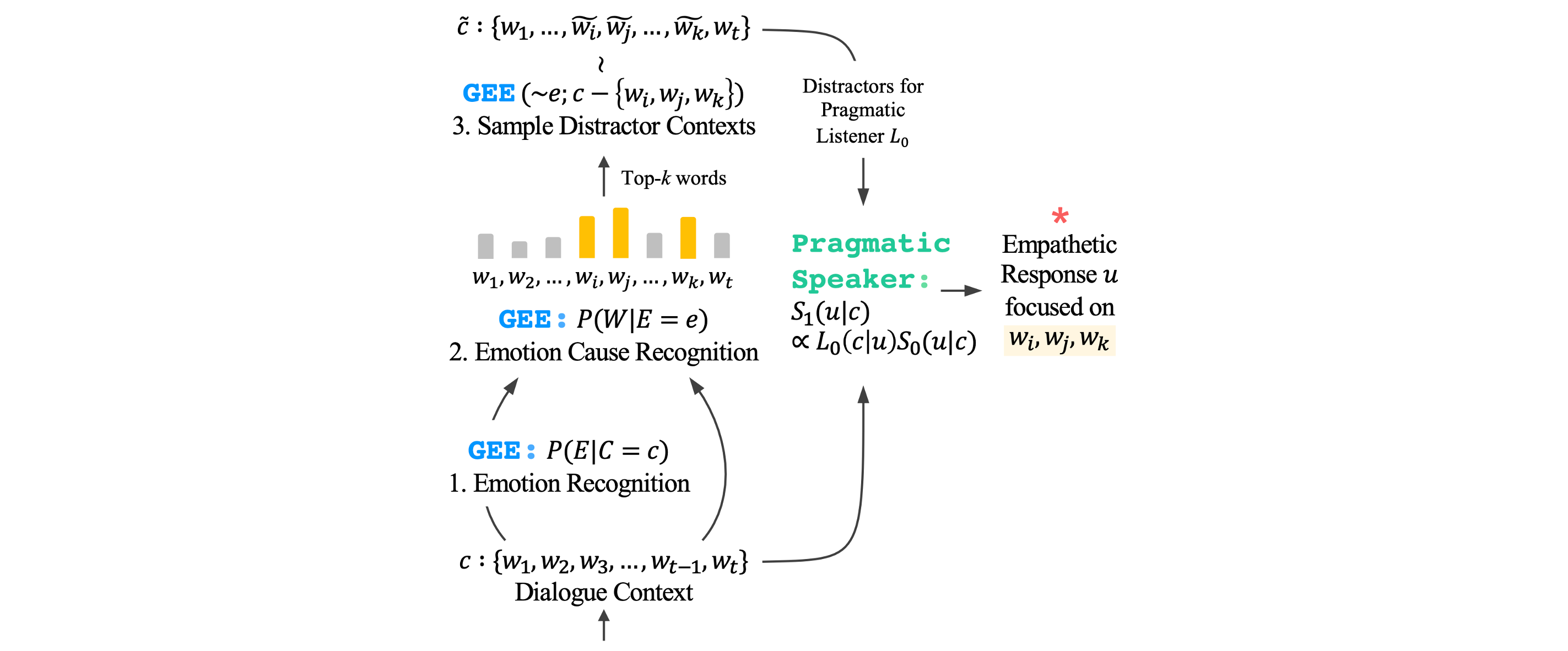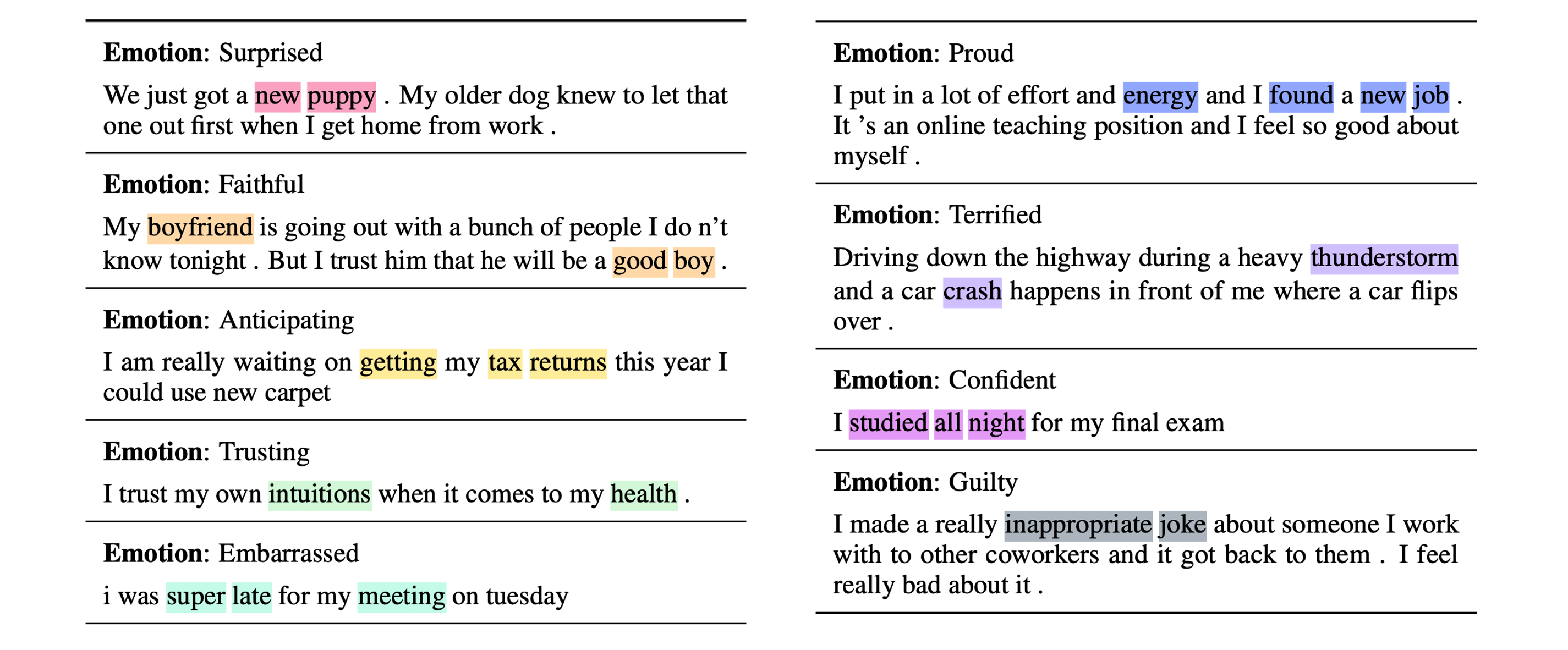
Official PyTorch implementation and EmoCause evaluation set of our EMNLP 2021 paper ?
Hyunwoo Kim, Byeongchang Kim, and Gunhee Kim. Perspective-taking and Pragmatics for Generating Empathetic Responses Focused on Emotion Causes. EMNLP, 2021 [Paper]
If you use the materials in this repository as part of any published research, we ask you to cite the following paper:
@inproceedings{Kim:2021:empathy,
title={Perspective-taking and Pragmatics for Generating Empathetic Responses Focused on Emotion Causes},
author={Kim, Hyunwoo and Kim, Byeongchang and Kim, Gunhee},
booktitle={EMNLP},
year=2021
}Our code is built on the ParlAI framework. We recommend you create a conda environment as follows
conda env create -f environment.ymland activate it with
conda activate focused-empathy
python -m spacy download enEmoCause is a dataset of annotated emotion cause words in emotional situations from the EmpatheticDialogues valid and test set. The goal is to recognize emotion cause words in sentences by training only on sentence-level emotion labels without word-level labels (i.e., weakly-supervised emotion cause recognition). EmoCause is based on the fact that humans do not recognize the cause of emotions with supervised learning on word-level cause labels. Thus, we do not provide a training set.

You can download the EmoCause eval set [here].
Note, the dataset will be downloaded automatically when you run the experiment command below.
| #Emotion | Label type | #Label/Utterance | #Utterance | |
|---|---|---|---|---|
| EmoCause | 32 | Word | 2.3 | 4.6K |
{
"original_situation": the original situations in the EmpatheticDialogues,
"tokenized_situation": tokenized situation utterances using spacy,
"emotion": emotion labels,
"conv_id": id for each corresponding conversation in EmpatheticDialogues,
"annotation": list of tuples: (emotion cause word, index),
"labels": list of strings containing the emotion cause words
}
All corresponding models will be downloaded automatically when running the following commands.
We also provide manual download links: [GEE] [Finetuned Blender]
You can evaluate our proposed Generative Emotion Estimator (GEE) on the EmoCause eval set.
python eval_emocause.py --model agents.gee_agent:GeeCauseInferenceAgent --fp16 FalseYou can evaluate our approach for generating focused empathetic responses on top of a finetuned Blender (Not familiar with Blender? See here!).
python eval_empatheticdialogues.py --model agents.empathetic_gee_blender:EmpatheticBlenderAgent --model_file data/models/finetuned_blender90m/model --fp16 False --empathy-score FalseAdding the --alpha 0 flag will run the Blender without pragmatics. You can also try the random distractor (Plain S1) by adding --distractor-type random.
To measure the Interpretation and Exploration scores also, set the --empathy-score to True. It will automatically download the RoBERTa models finetuned on EmpatheticDialogues. For more details on empathy scores, visit the original repo.
We thank the anonymous reviewers for their helpful comments on this work.
This research was supported by Samsung Research Funding Center of Samsung Electronics under project number SRFCIT210101. The compute resource and human study are supported by Brain Research Program by National Research Foundation of Korea (NRF) (2017M3C7A1047860).
Please contact Hyunwoo Kim at hyunw.kim at vl dot snu dot ac dot kr.
This repository is MIT licensed. See the LICENSE file for details.